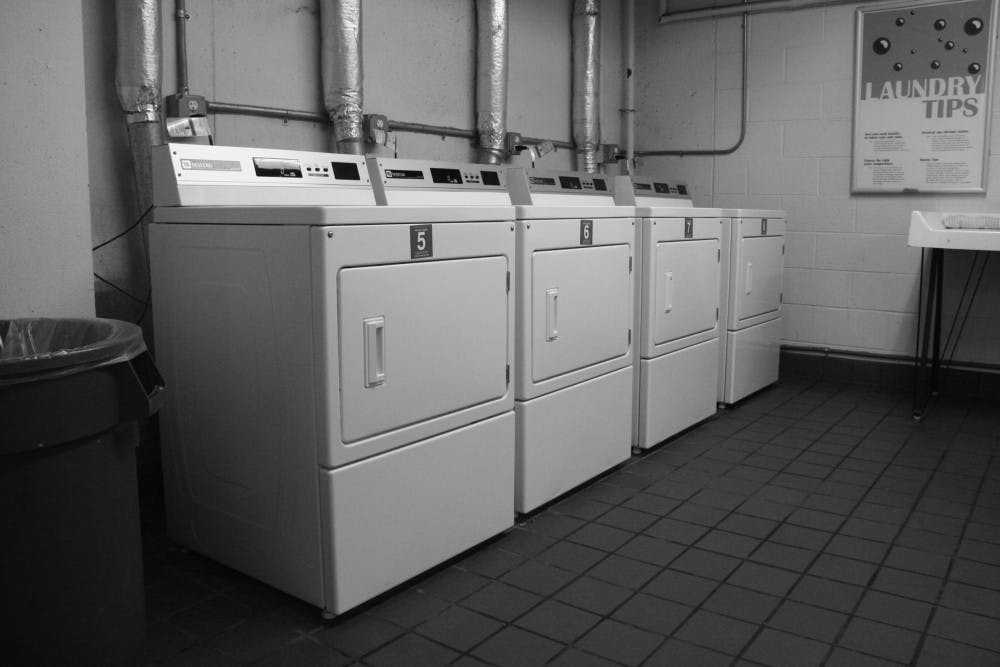The University's laundry system underwent a series of drastic changes over the summer, including the introduction of new machines, a price increase, a revamped infrastructure and more efficient energy standards. The changes were implemented after consistent urging by the Admissions and Student Services Committee on the Undergraduate Council of Students and the rest of the student body.
Old machines have been replaced with high-efficiency ones, saving approximately 300,000 gallons of water per year, said Scott Thatcher, director of technology for campus life. The new machines will be accompanied by a 25 cent increase in price - now $1.50 per load - as well as a major change in the payment method. Instead of using vending stripes and quarters to pay for laundry, the new machines only accept Bear Bucks, a system of payment formerly known as "declining balance."
First-years have new Brown ID cards, which do not have a vending stripe and feature a Bear Bucks helpline number on the back. In addition, the eight machines that allow students to add money to their Bear Bucks accounts are now "strategically placed" around campus, Thatcher said, to increase their availability.
"There may be limited machines, but the fact that they will actually work outweighs that all," said Holly Hunt '13, a member of the Admissions and Student Services Committee, of the card machines.
"We're trying to create something more useful and more reliable," Thatcher said. The old Card Value Center machines, which transferred money onto vending stripes, were becoming out-of-date technologically, he said, adding that repairing the machines was becoming increasingly difficult.
To even begin to deal with student requests for the laundry system changes, these machines had to be replaced, said Margaret Klawunn, vice president of campus life.
Klawunn said UCS's commitment served as the primary catalyst for undertaking the project. This was the opportune moment for the changes, said Abigail Braiman '15, chair of the Admissions and Student Services Committee. In addition to consistent complaints from the student body regarding the laundry facilities and vending stripe malfunctions, the previous laundry machine contracts were set to expire at the end of last year, Braiman said.
"We just kept mentioning it to the right people enough times," Hunt said. "Eventually, our priorities and Residential Life's priorities lined up."
The adjustment period may be the only downside for students, Thatcher said.
"I'm a die-hard quarter user myself," Hunt said, "so that was kind of inconvenient. But its seems that the system is just getting more efficient and our (ID cards) less complicated."
While many changes have already been implemented, Thatcher said the project is still in the works. One of the most exciting upcoming changes will be a new online system called LaundryView that will allow students to see what machines are free in their laundry room, Thatcher said, adding that the website can send students a text message when their laundry is done.
The department is also looking for ways to make it easier to add to Bear Bucks balances, potentially through online deposit systems and mobile applications, Thatcher said. These changes will likely be introduced to the student body by the beginning of next semester.





